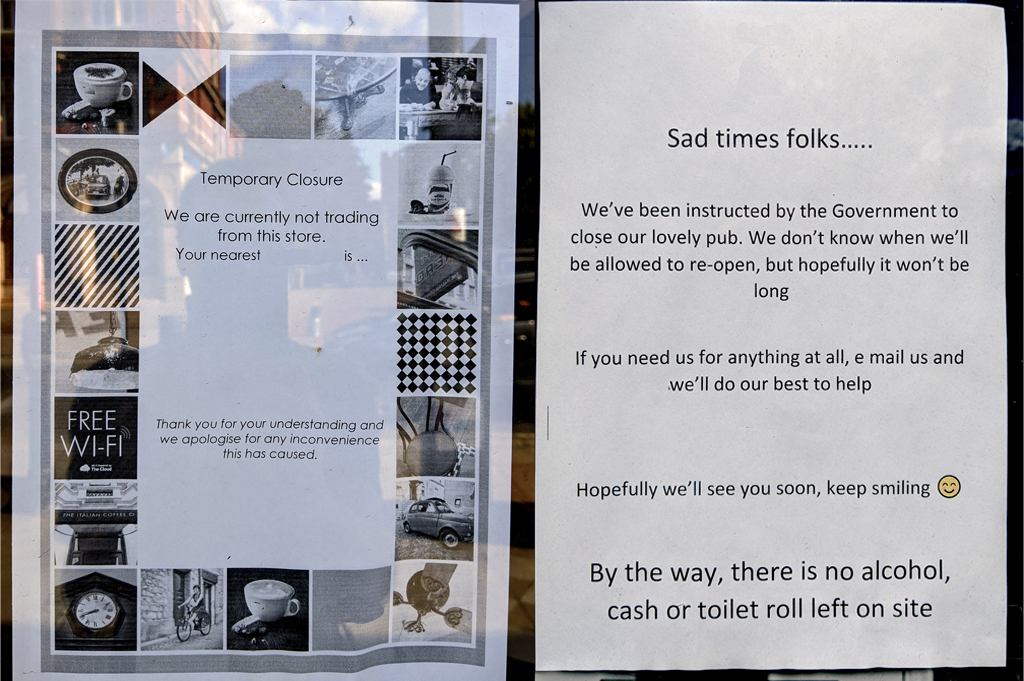When lockdown occurred in the UK back in March, businesses and shop keepers posted messages in their windows informing customers of their closure. A simple act, you’d think, without much meaning. But I’d argue that some of the examples I saw on walks around my local streets show that even the smallest communication gives you an opportunity to demonstrate your values, showing that you care for your customers and are acting professionally.
We’re playing our part: many notices made it clear that they were deciding to take action to protect themselves, their customers and their community – whereas others highlighted they were following government rules to close. The former businesses appeared to be proactive, taking responsibility, and choosing to act for the greater good. The others might have meant that they didn’t want to close, but it didn’t come out like that in their sign.
If we think about theories of control and power, the businesses who stated it was their choice to close implied they were responding to an intrinsic motivation for action, that they had control over their activities.
We care about you as customers: obviously this is easier for some businesses – many (but significantly, not all) hair and beauty businesses were able to demonstrate their real reciprocal relationships with their customers, with light-hearted comments about fixing their hair whatever state it would be in post-lockdown, references to the staff team by their first names, etc.
This was in stark contrast to two national chains (one pub, one coffee shop) who displayed standard printed notices declaring the venue was shut and little else (apart from a warning that no stock was left on the premises). This language and style came over as cold and uncaring.
Keep in touch: a handful of companies emphasised that customers could keep in touch via social media. Again, this is more relevant and effective for certain business sectors, but it really made a difference, helping create a sense of a community, of customers being seen as more than just a source of revenue.

Reflection
I appreciate that before lockdown businesses were acting under great pressure and confusion and may have rushed to get this communication done, but the difference in tone and approach between businesses is noteworthy – even when both are in the same industry and same size.
So my suggestion to you is that you think about all your communications, whether to staff or customers:
- Use them as an opportunity to display your values, and think about the message written between the lines.
- Many companies – both office-based and retail – have reported a benefit from communicating more often and trying different communication methods – could you do likewise?

